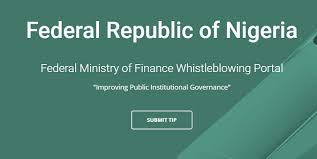In its effort to entrench whistleblowing in the public sector, the African Centre for Media and Information Literacy (AFRICMIL) is collaborating with the Presidential Initiative on Continuous Audit (PICA) to begin a sensitization and training engagement with staff of revenue-generating Ministries, Departments and Agencies (MDAs).
AFRICMIL has in the past four years been working to popularize the federal government’s whistleblowing policy through a project tagged Corruption Anonymous (CORA) which is supported by The John D. and Catherine T. MacArthur Foundation. In implementing activities under this project, AFRICMIL has built a solid partnership with PICA, a unit in the Federal Ministry of Finance, Budget and National Planning, charged with managing the whistleblowing policy and strengthening controls of government finances through internal audit process.
The sensitization and training programme, which starts on Thursday, June 24, at the Federal Inland Revenue Service (FIRS) will hold twice every fortnight across 13 MDAs. They include Nigerian Customs Service (NCS), Federal Inland Revenue Service (FIRS), Ministry of Foreign Affairs, Ministry of Trade and Investment, Ministry of Agriculture, Ministry of Water Resources, Ministry of Works, Pension Commission (PENCOM), Securities & Exchange Commission (SEC), Central Bank of Nigeria (CBN), Nigerian Immigration Service (NIS), Nigerian Deposit Insurance Corporation (NDIC) and Tertiary Education Trust Fund (TETFUND). In Lagos, Nigerian Ports Authority (NPA), Nigerian Shippers’ Council (NSC) and Nigerian Maritime and Safety Administration (NIMASA) are the targets.
In a press statement, Chido Onumah, Coordinator of AFRICMIL, said although whistleblowing had led to huge financial recoveries for the government, there were still gaps in information and knowledge in the MDAs on how to interface with the whistleblowing policy and its benefit in the fight against corruption.
“The current engagement,” he said, “which involves holding workshops in MDAs is a follow-up on the intervention that took place in February 2020 in the first phase of the CORA project where representatives of MDAs were put through how best to make disclosures and guarantee the protection of staff of MDAs who blow the whistle.”
Onumah said the objectives, among others, of this new round of intervention include to review how to block leakages and improve government revenue through whistleblowing; get MDAs to develop whistleblowing mechanisms in their governance codes, processes and operations; gauge the effectiveness of the whistleblowing policy in the MDAs and what input they can make in the draft whistleblowing and whistleblower legislation that PICA and partners are developing, explore what legal support is available to whistleblowers and build confidence among potential whistleblowers in the MDAs.
At the end of the process, AFRICMIL hopes to put in place a mechanism to rank MDAs on their whistleblowing practice.
